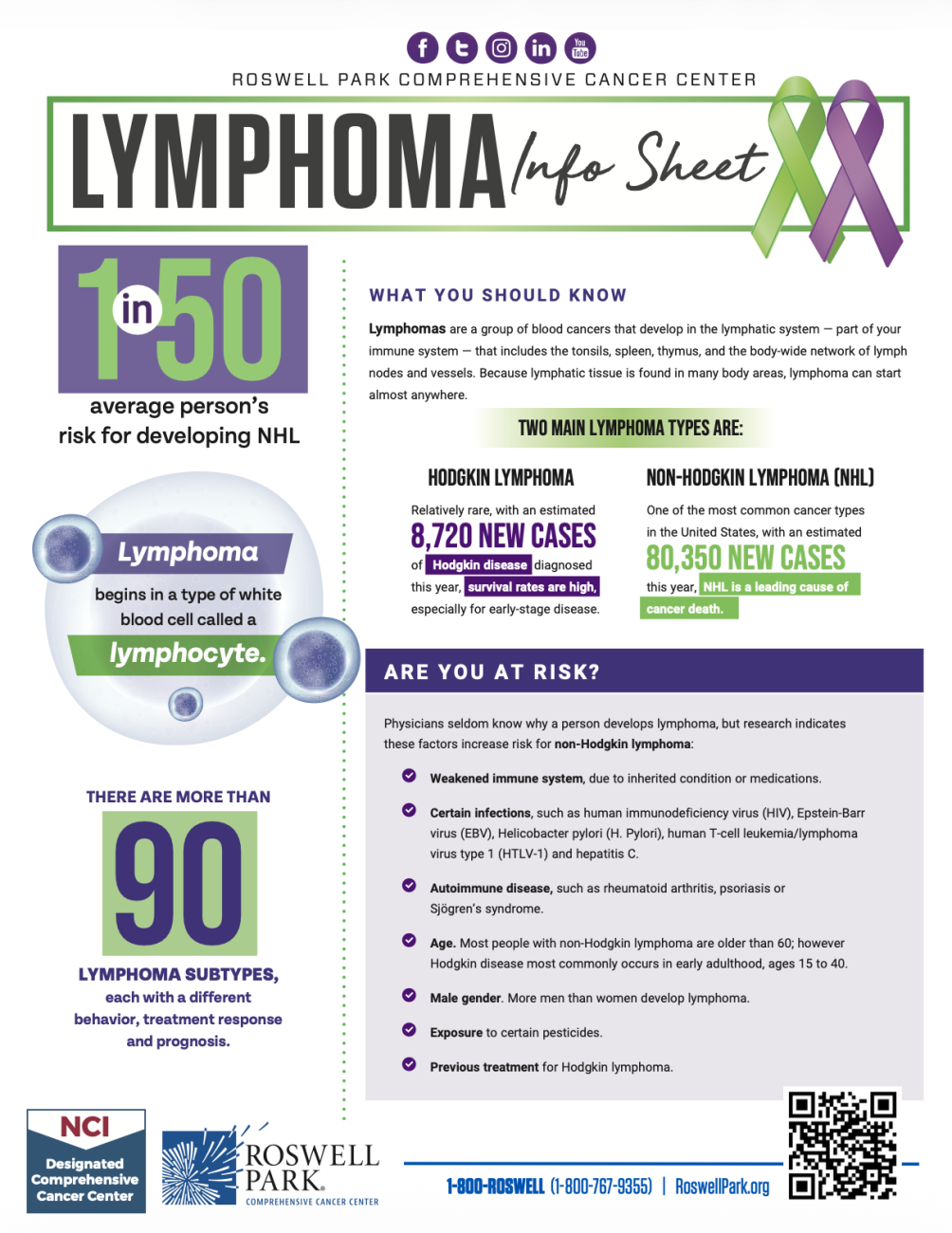Lymphoma is a type of cancer that begins in lymphocytes — special white blood cells that are part of your body’s immune system.
Healthy lymphocytes protect you from disease and the growth of tumors. There are two types of lymphocytes:
- B cells. B cells mature into plasma cells, which make antibodies that fight disease.
- T cells. You have several types of T cells, and each type has a different function. Some can directly destroy certain kinds of bacteria or cells infected with viruses or fungi. Other types of T cells can either boost or slow the activity of other immune system cells.
Lymphocytes are found in a clear, watery fluid called lymph, which flows into all tissues of your body through the lymphatic system. Your lymphatic system has many parts, including your:
- Lymph vessels. A network of thin tubes that collect lymph from different parts of your body and return it to the bloodstream.
- Lymph nodes. Small, bean-shaped organs that filter lymph and store the white blood cells that help fight infection and disease. Lymph nodes are located along the network of lymph vessels found throughout your body. Clusters of lymph nodes are found in your underarm, pelvis, neck, abdomen and groin. Swollen lymph nodes can be a sign of infection.
- Spleen. An organ located on the left side of your abdomen, near the stomach. Your spleen makes lymphocytes, filters the blood, stores blood cells and destroys old blood cells.
- Thymus. An organ in your chest, behind the breastbone, in which lymphocytes grow and multiply.
- Tonsils. Two small masses of lymph tissue at the back of your throat. The tonsils produce lymphocytes.
- Bone marrow. The soft, spongy tissue in the center of your large bones. Bone marrow produces white blood cells, red blood cells and platelets.
- Liver. Your liver produces lymph.
- Blood. Lymph carries lymphocytes (white blood cells that fight infection) throughout your body.
- Skin. Your skin contains lymphatic tissue, too!
Because lymphatic tissue is found throughout your body, lymphoma can start almost anywhere.
Pediatric lymphoma
Find information about our services for pediatric lymphoma patients, please visit our Pediatric Cancer and Blood Disorders page.
Types of lymphoma
Lymphomas are a group of different kinds of cancer. They behave differently, respond differently to treatment and have different prognoses. Although there are many subtypes (more than 90 in all), in general they can be divided into two groups — Hodgkin lymphoma (also known as Hodgkin disease) and non-Hodgkin lymphoma (nHL). In addition, a chronic form, called chronic lymphocytic leukemia (CLL)/small lymphocytic lymphoma (SLL) is treated by our nationally-recognized lymphoma team, which has extensive experience in identifying and treating all subtypes of the disease.
Hodgkin lymphoma
With the right therapy, Hodgkin Lymphoma (HL) is curable in about 85% of patients.
Non-Hodgkin lymphoma
There are more than 90 different subtypes of Non-Hodgkin lymphoma, which is more common than Hodgkin lymphoma.
Chronic lymphocytic leukemia
Chronic lymphocytic leukemia (CLL) is the most common type of adult leukemia.
